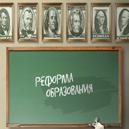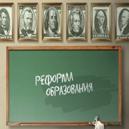В статье излагается ход реформирования Российской академии науки, начиная с 2013 года, описываются его основные направления и причины, анализируется характер реформ. Передача научно-исследовательских организаций под управление бюрократической структуре сделала фундаментальную науку в России полем для сомнительных и вредных экспериментов. Делается вывод о несоответствии модели реформ задачам перехода к инновационному развитию, стоящим перед страной. Профсоюзные организации РАН критикуются за слабую работу с коллективами научно-исследовательских учреждений, за уход от задач отстаивания интересов работников и науки. Сообщается о Третьей сессии Конгресса работников образования, науки и культуры России (КРОН-3) и приведена резолюция КРОН-3 о необходимости принятия альтернативной программы сохранения и развития науки и образования.
Reforming Russian Academy of Science: Results and Prospects of Bureaucratic Games
The article describes the history of the Russian Academy of science reforming since 2013, describes its main trends and causes, and analyzes the nature of the reforms. Transfer of research organizations under the control of the bureaucratic structure made of fundamental science in Russia field to doubtful and hazardous experiments. The conclusion about the inconsistency of the reform model with the task of transition to innovative development facing the country is formulated. Trade Union organizations of the Russian Academy of Sciences are criticized for poor work with the collectives of scientific research institutions, for rejection of the defending the interests of workers and science. It is reported on the Third session of the Congress of workers of education, science and culture of Russia (KRON-3) and the resolution of KRON-3 about the need to adopt alternative programs for the preservation and development of science and education.
 Ранний опыт государственного строительства большевиков и Конституция РСФСР 1918 года
Ранний опыт государственного строительства большевиков и Конституция РСФСР 1918 года
 7
7
 25481
|
Официальные извинения
25481
|
Официальные извинения
 972
972
 106277
|
Становление корпоративизма в современной России. Угрозы и возможности
106277
|
Становление корпоративизма в современной России. Угрозы и возможности
 239
239
 85169
85169


